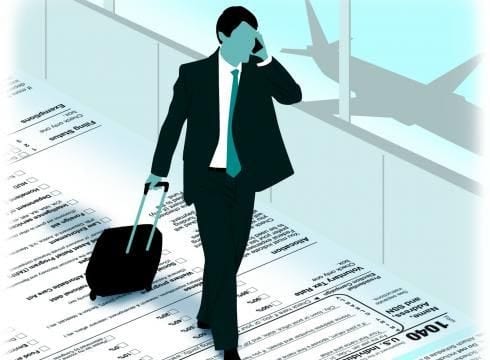Having Difficulty Managing Travel Expenses for Your Small Business?

Any small business owner knows the year-round struggle of managing travel expenses, whether you’re a one-man crew or a team of many. Without an effective strategy to combat this, you can find yourself eating major losses and suffering from some heavy headaches come tax season.
We understand how difficult this can be, especially for small business owners that are new to the game. We’ve seen where most people go wrong when managing these expenses and are here to offer some friendly advice.
Let’s take a look at the four main things holding you back from being organized when it comes to small business travel expenses.
Do You Have a Clear Travel Policy?
Most small business owners will only feel the need to create a travel policy when they have employees that travel frequently. While a travel policy is especially important when you have employees, it’s also good practice to keep one updated for yourself to follow.
A travel policy will clearly state everything that’s expected when on the road. This includes what they can or can’t do, what expenses are non-refundable, the reimbursement process, and any grey areas that need to be brought to the light.
When you create your travel policy, make sure it’s communicated to your employees frequently. You will also want to update it twice per year so it stays current.
Plan Ahead!
There’s no arguing the fact that businesses tend to spend much more when traveling is done on impulse. Not only can you find exclusive deals and discounts by booking flights and reservations in advance, but you won’t be rushing yourself when it’s time to move.
This will also give you the opportunity to find reasonable hotel rooms that are near your meeting locations. When you can walk to your meetings instead of renting a car or using Uber every day, you’d be surprised at how much money you will save!
Keep Track of Everything
Depending on what your travel policy allows and what you can file as a business expense on your taxes, you’ll want to keep receipts of everything — and I mean everything. Not only will you need this when filing taxes, but it will help you keep track of reimbursements sent to your employees.
One of the things we see often is companies paying employees when it’s not necessary or when it goes against their travel policy, simply due to an unorganized process.
Follow Through With Swift Reimbursements
Piggybacking off the last piece of advice, always make sure you are reimbursing your employees as swiftly as possible. Your travel policy should state how long this process takes and it’s your responsibility that you follow through with that promise.
Not only will this keep your employees happy, but it will help you stay on top of things and avoid having unpaid travel expense reports piling up in the corner.
If you’re struggling to manage your travel expenses and need extra assistance, hiring a professional will be the best thing you can do for your business. A certified public accountant is an expert in this field and will help you stay productive and diligent year-round.
